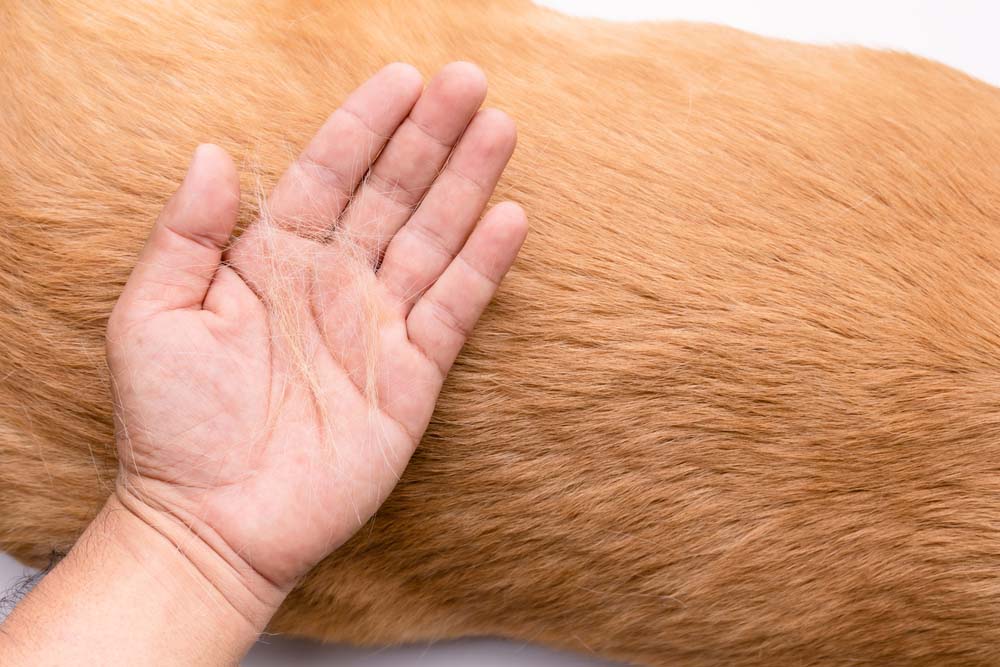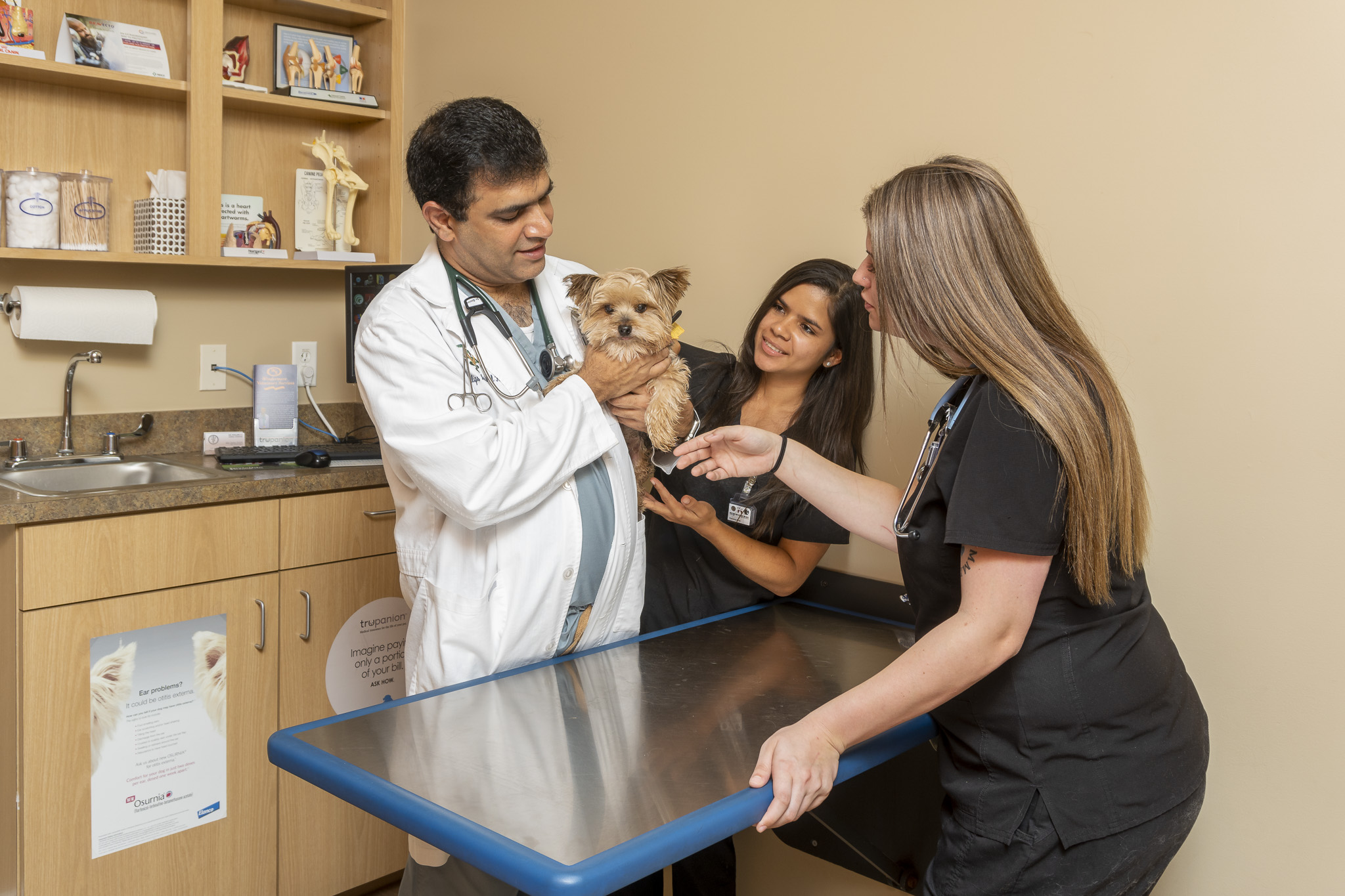
We're here for you
Emergency?
If your pet is exhibiting concerning symptoms or experiencing a medical emergency, please call our clinic at (407) 352-2579. We’ll help you through it.

It can be concerning when you reach to give your animal a pet and suddenly grab a chunk of hair. While many pets shed, if there is extreme hair loss that doesn’t seem to go away, it could be a symptom of a disease, nutritional deficiency, or potential allergens in the environment.
Before starting any treatment plan, always consult with a vet on the possible causes. With proper symptom monitoring and evaluation, a medical professional can determine whether the hair loss in your pet is serious or not.
Common Reasons Pets Lose Hair
The following are some reasons your pet may be losing hair:
- Allergies: Irritation from indoor or outdoor allergens can lead to symptoms such as hair loss, itching, and redness.
- Hormonal Changes: Similar to how humans have hormonal fluctuations, so can pets. Changes in hormones can slow hair growth or cause hair loss in conditions such as hypothyroidism.
- Nutrient Defficiency: Pets need a full-spectrum supply of daily nutrients to keep their immune systems healthy. A lack of nutrients can weaken hair and make the follicles more prone to shedding.
- Cancer: In rare cases, hair loss could be a signifier that your pet has cancer or is growing a tumor. Cancer can cause localized hair loss in pets.
- Pet Genetics: Different types of pets can have varying types, textures, and coats of fur. Depending on the genetic history of your pet, some breeds are more likely to lose hair than others.
- Parasite: Parasites such as ticks may burrow into the skin of a pet and cause swelling, itching, redness, and hair loss from the damage to the skin and follicles.
- Anxiety, stress: A stressful life event for a pet can cause them to lose their hair. Similarly, chronic stress also elevates cortisol levels in pets and leads to excess hair loss.
How To Stop Your Pet From Losing Hair
If you’re concerned that your pet’s hair loss is a sign of poor health, consider the following steps to address treatment and prevention.
Step #1
Address Your Pet’s Diet
The first step is to always take a look at the nutrient quality of your pet’s diet. Determine if the whole or packaged food you feed them meets their breed’s daily nutrient requirements. If you’re unsure where to start, ask a vet for dietary recommendations that promote hair growth.
Step #2
Avoid Stressful Environments
Keep your pet away from too many environmental stressors if possible. Maintain a calm, quiet space where they can retreat to rest away from busy parts of the household. It also doesn’t hurt to give them more affection regularly to calm their nervous system. Over time, their hair loss may come to a stop as the stress decreases.
Step #3
Parasite Prevention
Regularly follow parasite prevention methods such as the administration of flea drops, and frequently checking your pet’s fur for mites or ticks. These prevention methods can stop a parasite from spreading and leading to increasing hair fallout.
Step #4
Regular Vet Check-Ups
The final step is to always make regular vet check-ups with your pet. This helps keep pet owners accountable for tracking their companion’s health and spotting any health conditions before they progress into anything more serious. Keeping up with nutrition, vaccines, parasite prevention, and stress reduction can keep your pet’s fur soft and healthy.
Contact Your Vet For More Hair Loss Tips
Hair loss may be worrisome, however, it is manageable. If you ask a vet for an evaluation of your pet’s hair loss case they will perform a holistic evaluation of their diet, lifestyle, medical history, age, and genetics of the species. Once a vet understands the various biological and environmental influences on their health, a treatment plan will be recommended for you and your pet.

Step One:
Call us to book your pet’s appointment.

Step Two:
Our expert vet will take care of all of your pet’s needs.

Step Three:
Get back to enjoying your happy and healthy life with your furry best friend.

Get the Best Care for Your Pet
Come Visit Dr. Qasim
Book your pet’s appointment with Dr. Qasim to ensure a long, happy life together.

We love and care for each patient as if they were our own pet.
Meet Our Team of Animal Lovers
Dr. Bilal Qasim, DVM, established Dr. Phillips Animal Hospital in 2011 after practicing veterinary medicine for over 17 years with the help of talented and caring veterinary technicians.


